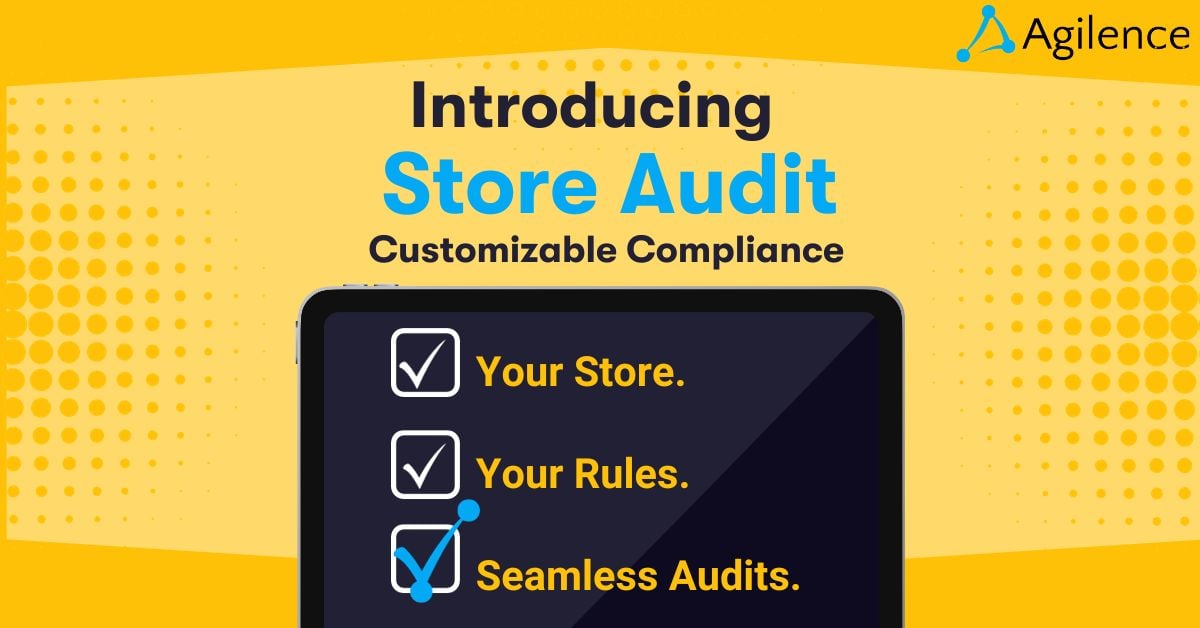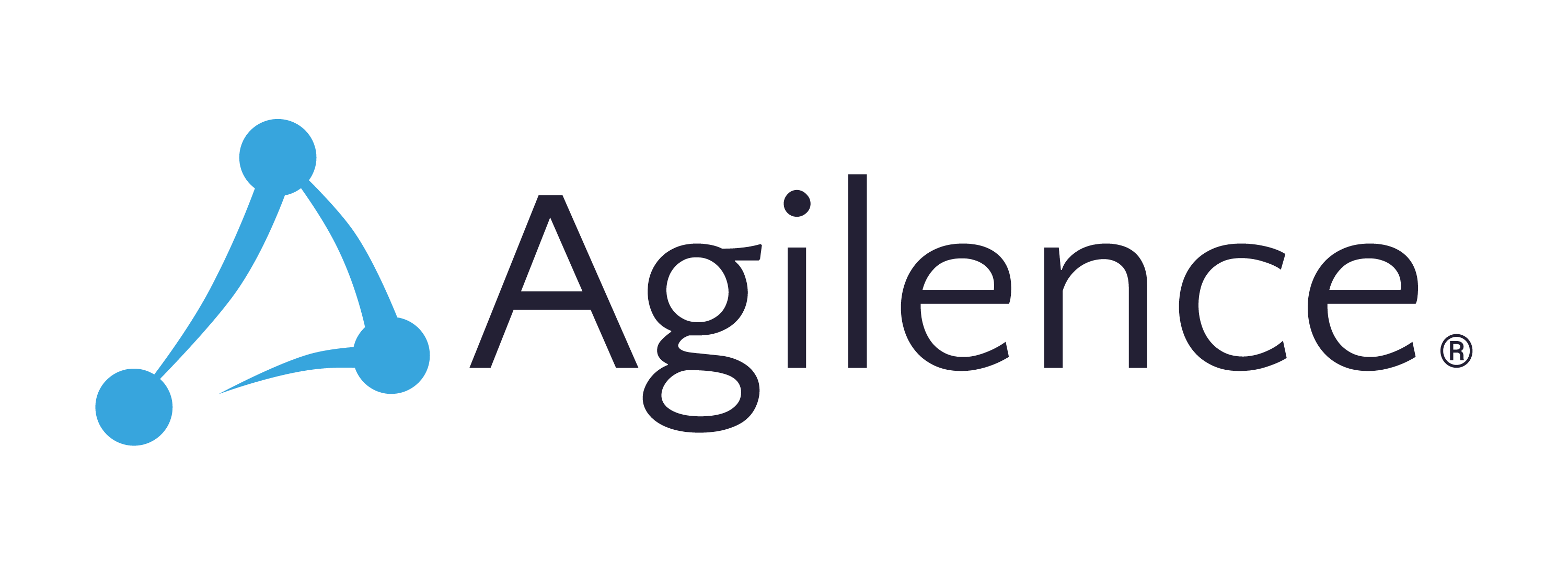Mastering Retail Store Audits: Your Ultimate Guide
RetailIn the competitive world of retail, staying ahead of the curve requires more than just stocking your shelves with the latest products. It involves an in-depth understanding of your store operations, customer behavior, and overall store performance. This is where retail store audits come into play.
Retail store audits are a critical tool that helps retailers maintain control over their business, ensuring they meet their operational standards, maintain safety and compliance and standards, reduce loss, and deliver an exceptional shopping experience to their customers. However, the process of conducting a successful retail audit is often daunting.
This comprehensive guide aims to walk you through the world of retail store audits. We'll delve into what a retail audit is, its importance, and the benefits it brings to your business. We'll explore the different types of audits you can conduct and provide you with a step-by-step guide on how to perform one. We'll also discuss the potential challenges you might face during the process and how technology can aid in overcoming these hurdles.
Whether you're a seasoned retailer or just getting started, this guide will arm you with the knowledge and tools you need to conduct successful retail store audits.
What is a Retail Audit?
Known by a variety of names (retail audits, store audits, field audits, store visits, store inspections, and more), a retail store audit is a thorough examination of a store's operations carried out to assess its overall performance and adherence to company standards. It involves the systematic scrutiny of different aspects of a retail business, including product availability, pricing strategies, promotional effectiveness, customer service quality, point-of-sale procedures, and overall store cleanliness.
Retail audits are conducted for several reasons. First, they provide valuable insights into how well a store is performing against its targets and objectives. This can help identify areas where improvements can be made, such as enhancing customer service or optimizing inventory management.
Secondly, retail audits ensure compliance with company standards and regulatory requirements. They check whether the store is adhering to company policies, maintaining required safety standards, and meeting legal obligations. Non-compliance can lead to reputational damage, financial penalties, and in severe cases, closure of the store.
Retail audits also provide an opportunity to benchmark performance against competitors. By comparing a store's operations, merchandising, and customer service with that of rivals, businesses can gain a competitive edge and identify strategies to increase market share.
Retail audits are a vital tool for retailers looking to optimize their operations, ensure compliance, and remain competitive in an ever-changing industry.
The Benefits and Importance of Retail Audits
Retail audits play a significant role in improving business operations. They offer a clear, objective view of a store's operations, allowing businesses to make data-driven decisions that can enhance performance and profitability. Audits can be used to improve retail operations, performance, and margins across a variety of business areas.
One of the primary benefits of retail audits is the ability to identify operational inefficiencies. For instance, an audit might reveal issues with inventory management, such as overstocking or understocking of certain items. Audits can reveal issues with stock control, helping to prevent overstocking, understocking, or stock discrepancies. By addressing these issues, retailers can reduce costs associated with excess inventory and lost sales due to out-of-stock situations.
Retail audits also help ensure consistent customer experiences across all locations. Store audits can uncover areas that negatively impact the shopping experience, such as poor product availability or subpar customer service, allowing businesses to make necessary improvements. By standardizing processes and procedures, retailers can ensure that customers receive the same level of service and quality of products no matter which store they visit. This consistency can significantly improve customer satisfaction and loyalty.
Retail audits can uncover compliance issues that could potentially lead to legal problems or damage to the company's reputation. For example, an audit might identify non-compliance with health and safety regulations or failure to adhere to company policies. Early detection of these issues enables businesses to take corrective action before they escalate. Regular audits ensure your store adheres to industry regulations, company policies, and safety standards, minimizing legal risks.
Beyond just compliance, retail audits are integral to ensuring employee and customer safety. They can identify potential hazards such as improperly stored merchandise or faulty equipment, allowing immediate rectification to minimize accidents. Audits ensure compliance with health and safety regulations, fostering a safe environment for everyone in the store. They also evaluate the effectiveness of employee training on safety procedures and protocols, and if gaps are found, training programs can be revised to enhance safety standards further. Regular retail audits uphold your store’s commitment to safety, promoting a secure, welcoming environment, and fostering trust and loyalty among your customers and employees.
Store audits are also critical for loss prevention/asset protection and security teams. Audits can help identify sources of shrink and loss, as well as help identify potential risks and vulnerabilities, enabling proactive measures to mitigate them.
In terms of marketing effectiveness, retail audits can provide insights into how well promotional activities are working. They can identify which promotions are driving sales and which ones aren't, allowing for more targeted and effective marketing strategies.
Finally, retail audits can reveal valuable competitive insights. By comparing their operations, pricing, and customer service with those of competitors, retailers can identify areas where they need to improve and opportunities to differentiate themselves.
Types of Retail Audits
Retail audits can be categorized into several types, each focusing on a specific area of store operations. There is a wide variety of audit types within each of these categories, especially operational audits, which we’ll go into more detail in a separate article. Here are some of the main types of retail audits:
- Operational Audits: These audits focus on evaluating the efficiency and effectiveness of a store's operations. They may cover areas such as inventory management, merchandising, customer service, and sales processes. For instance, an operational audit might evaluate whether a store is adequately staffed during peak hours or if products are displayed in a way that maximizes sales. The benefits include improved operational efficiency, increased sales, and enhanced customer satisfaction.
- Compliance Audits: Compliance audits assess whether a store is adhering to company policies, industry regulations, and legal requirements. This could involve checking if the store is complying with health and safety regulations, labor laws, or company policies regarding product returns. For instance, a compliance audit might reveal a failure to comply with food safety regulations in a grocery store. The benefits include avoidance of legal penalties, protection of company reputation, and assurance of safe and ethical operations.
- Risk and Safety Audits: Risk audits identify and assess potential risks that could negatively impact a store's operations or profitability. This could involve evaluating risks related to security, supply chain, technology, or market trends. For example, a risk audit could identify a high risk of shoplifting due to inadequate security measures. The benefits include proactive risk management, minimization of losses, and strategic planning for potential challenges.
- Loss Prevention Audits: These audits are designed to identify and minimize sources of loss in a retail setting, such as theft, administrative errors, or wastage. For example, a loss prevention audit might examine the effectiveness of a store's security measures or inventory management systems. The goal is to reduce shrinkage and increase profitability while ensuring a secure shopping environment for customers. The benefits include cost savings, improved operational integrity, and a safer retail environment.
Each type of retail audit offers unique benefits and insights, and retailers conduct a combination of these audits to gain a comprehensive understanding of their store's performance, compliance, and risk levels.
6 Steps to Conduct a Retail Store Audit
The retail audit process is a structured approach that ensures a comprehensive and effective assessment of a store's operations. Here are the key steps involved in a typical retail audit process:
1. Preparation: The first step in the audit process involves defining the objectives of the audit, determining the scope, and identifying the areas to be audited. This could include specific departments, processes, or locations. At this stage, an audit schedule is also developed. You will need to decide on how you will conduct the audit, such as through a physical checklist or a software solution such as Agilence Store Audit.
2. Audit Creation. Now, build the actual form for the audit checklist using your software tool or paper checklist. You want to make sure the answers give you the actionable data set you want after the audit is conducted. Write questions that have enough detail that the answers are not ambiguous. You may want to include instructions, including an image or video, of exactly what to look for and measure. Decide if and how you want to score your audit and how you want to weigh given questions or sections.
3. Execution: This step involves gathering data related to the areas being audited. Typically, this means the employee or auditor being on the ground in-store, walking through the location, inspecting what the audit is measuring, such as procedures, equipment, cleanliness, etc., and filling out the audit form appropriately with all necessary data.
4. Evaluation: The collected data is then analyzed to assess the store's performance against set standards or benchmarks. This may involve comparing the store's practices with company policies, industry standards, or competitor practices.
5. Reporting: After the evaluation, an audit report is prepared detailing the findings of the audit. The report typically includes areas of non-compliance or inefficiency, recommendations for improvement, and a plan for implementing the recommended changes.
6. Follow-up: The final step in the audit process is follow-up, where the implementation of the recommended changes is monitored. This ensures that the issues identified during the audit have been addressed and helps prevent recurrence of the problems. This can be one of the hardest stages; remember, the results of your audit are wasted if they aren’t used to improve operations and fix any issues detected.
This systematic approach to conducting retail audits ensures a thorough and objective assessment of a store's operations, leading to valuable insights and actionable recommendations for improvement. By regularly conducting retail audits and acting on their findings, retailers can continually enhance their performance and stay competitive in the retail market.
Looking for the best retail audit solution? Schedule a demo to see Agilence Store Audit in action
Challenges in Conducting Retail Audits
While retail audits are essential for maintaining and improving store performance, they aren’t easy. From planning to executing to harnessing the insights for operational changes, retailers often face several challenges in conducting these audits. Here are some of the common challenges:
- Resource Constraints: Retail audits can be time-consuming and may require significant manpower, especially for retailers with multiple store locations. This can be a challenge for businesses with limited resources.
- Data Accuracy: Collecting accurate and reliable data is crucial for a successful audit. However, errors can occur in data collection due to manual entry, overlooked information, or misinterpretation of data.
- Consistency: Maintaining consistency in audit processes across different stores or departments can be difficult, particularly for large retail chains. Inconsistencies can lead to misleading results and hinder the effectiveness of the audit.
- Change Implementation: Once the audit is completed, implementing the recommended changes can be a challenge. This could be due to resistance from staff, lack of resources, or operational constraints.
- Follow-up: Ensuring that the improvements suggested in the audit are implemented and sustained over time requires regular follow-up, which can be challenging to manage.
- Keeping Up with Regulations: Compliance audits require staying updated with frequently changing laws and regulations, which can be complex and time-consuming.
Overcoming these challenges requires careful planning, efficient use of resources, and effective change management strategies, and the use of the right tools, such as Agilence Store Audit, which is custom-built for retailers to address the common challenges inherent with performing audits. Despite these challenges, the benefits of retail audits make them a critical tool for any retailer seeking to optimize store performance and customer satisfaction.
The Role of Technology in Retail Audits
Technology plays a significant role in modern retail audits, helping to streamline and enhance the auditing process in several ways:
- Data Collection: Digital tools can automate the data collection process, reducing the risk of human error and ensuring more accurate results. For example, handheld devices can be used to scan barcodes and check inventory levels, while digital forms can replace paper checklists for easier data entry and analysis.
- Real-Time Reporting: With cloud-based audit software, data can be uploaded in real-time, allowing for immediate analysis and reporting. This speeds up the auditing process and enables quicker decision-making.
- Consistency: Digital audit forms and checklists ensure a standardized approach across all store locations, resulting in consistent data that is easier to compare and analyze.
- Trend Analysis: Analytics capabilities allow retailers to track performance over time and identify trends or patterns. This can provide valuable insights into areas of strength and weakness and inform strategic planning.
- Ease of Compliance: Compliance with legal and industry standards can be automated through technology. For example, software can be programmed to flag any non-compliance issues, making it easier to identify and address these issues promptly.
- Improved Follow-up: Digital systems can automatically schedule follow-up audits or send reminders, ensuring that corrective actions are implemented and tracked effectively.
By leveraging technology, retailers can conduct more efficient, accurate, and effective audits. However, it's important to choose the right technology solutions that align with the specific needs and resources of the business. Agilence Store Audit is designed to provide retailers with the benefits of a digital system but with greater simplicity and ease of use than existing solutions.
Easily Manage and Conduct Retail Audits with Agilence Store Audit
Agilence Store Audit is a comprehensive, user-friendly software for building, scoring, and conducting store audits. Robust, reliable, and fully configurable, Store Audit significantly reduces the complexity of audit processes, centralizes data, and improves communication and execution of compliance standards.
With a simple yet powerful design, there’s no need for support requests or tedious data uploads. Admins can build an audit, set dynamic scoring, and activate the audit in minutes, then instantly update the audit anytime.
Here are some of the key functions you get with Agilence Store Audit:
- Audit Configuration & Management: Users can easily create and edit custom audit forms with a mix of question types, including dropdowns, checkboxes, and free-text responses. It simplifies the process of conducting regular and ad hoc audits, ensuring compliance with safety standards, branding guidelines, and other regulatory requirements. All your audits and audit data are securely stored in one centralized place.
- Dynamic Form Scoring: Agilence Store Audit’s scoring functionality helps provide more precise evaluations. Administrators can set different weightings for questions, emphasizing the relative importance of critical compliance areas. Inverse scoring allows for more flexibility in how audits are created.
- Automation. Automatically trigger follow-up tasks and notify relevant people based on audit results. Connect to Agilence Case Management to create cases for relevant issues.
- Problem Detection & Insights: By analyzing audit results, administrators can pinpoint areas of underperformance or non-compliance, triggering targeted audits and management reviews. This feature helps in identifying both location-specific issues and systemic organizational challenges.
- Real-time Customization and Updates: Flexibility is at the core of Agilence Store Audit. Users can modify audit questions and scoring in real-time, allowing for immediate updates that reflect changes in policies, branding, or regulations.
- Mobile Functionality: Store employees can conduct and log audits directly through their mobile devices, even uploading photos, videos, and other files, expediting the audit process.
- User-Centric Design: Unlike many competitor products that are cumbersome to configure, Agilence Store Audit offers a user-driven design that’s easily customizable without the need for extensive support or tedious data uploads.
Related Articles

Denny's and Keke's Serve Up Operational Excellence With Agilence Audit Management
Agilence, Inc., a leader in loss prevention and operations solutions for the retail, restaurant, and hospitality industries, ...
Customizable Compliance Is Here: Introducing Agilence Store Audit
Audits are a critical operational process for retailers, restaurants, and any business with brick-and-mortar locations. They ....png)
Are Remote Loss Prevention Audits Here to Stay? What you Need for a Virtual Store Visit
As the economy begins to rebound, retailers are experiencing increased traffic. Retailers and staff are struggling to balance...Subscribe to our blog
Receive free educational resources like exclusive reports, webinars, and industry thought leadership articles straight to your inbox.

